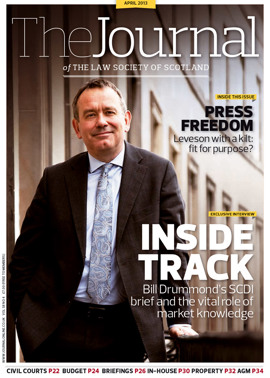How not to win business: a guide for professionals

As the Hitchhiker’s Guide to the Galaxy reveals, the answer to life, the universe and everything is 42. Yet some of the best brains on earth (and elsewhere?) have long been stumped by the question: Why are professionals so inexpressibly awful at selling their colleagues’ services? Common sense dictates that selling more services to current clients should be easier than seeking new clients – eight times easier, so it’s said. Yet typically, common sense flies out the window when darker forces march through the door. Why so? Some of the reasons are benign; others are not.
First, doing our own job is taxing enough, and it is no trouble to think only in the moment, not strategically. Secondly, “silo thinking” is alive and well – people in one practice area knowing little about what other parts of the business do, and not really caring; in general, the bigger the firm, the bigger this problem.
Thirdly, where there are clients, there is possessiveness – you know the kind of person who seems to have read Lord of the Rings at an impressionable age and thought Gollum was a terrific role model. “We wants it! We needs it! Must have the precious!” Clients are the route to status, advancement and reward. Having sweated to build valuable relationships, why, we may think, should we offer even a share on a plate?
Fourthly (whisper it), we do not always trust colleagues to look after “our” clients properly, and fear collateral damage if they mess up. This contaminated thinking leads to loss of income, loss of opportunity and internal tensions.
So what can be done to overcome it and deliver the whole firm (an expression I much prefer to “cross-selling”)? There is no quick fix. Any solution has to start at the top, with clear statements of intent and a thoughtful combination of carrots and sticks to drive the right behaviour. Firms with an “eat what you kill” culture will never cross-sell effectively. Neither will firms who are so collegiate that people’s lacklustre efforts to sell themselves or colleagues are not challenged. The ability to deliver the whole firm effectively deserves a central place in performance appraisal, and reward means not just cash, but recognition and public celebration of success.
A board can set the tone, but ultimately, it is individuals who deliver results. Here, we encounter a paradox. In the long run, the more altruistic we are, the greater our payback. Humans are programmed to reciprocate. Our natural impulse to return a favour is key to our evolution from a time when we were, literally, scratching each others’ backs on the African savannah. If you want colleagues to help you win work, start by asking, “What can I do for them?” In fact, do it anyway. The cherished internal relationships you create will be at least as important to building your practice as the external.
A rising tide lifts all boats. The Gollums never get this, and that is why, like him, they usually end up thwarted, friendless and sunk.
In this issue
- Fifty shades of lay?
- Employee owners: a view from across the Pond
- All change
- EIAs: increasing the impact
- Mooting comes to Strasbourg
- Reading for pleasure
- Opinion column: Elaine Sutherland
- Book reviews
- Profile
- President's column
- Minimise the risk of rejection
- Helping with enquiries
- Path to growth
- New starts for all?
- Leveson: alarm bells
- McLeveson: still in balance
- From Gill to Bill
- A Budget for aspiration?
- Too far removed?
- Enough to send you to sleep
- Interest on damages: what rate?
- Scottish Solicitors' Discipline Tribunal
- Let's get personal
- Good hedges make good neighbours
- Sep rep: on to the rules
- Ask Ash
- Change management for lobsters
- How not to win business: a guide for professionals
- Keeping errors in check: 2
- Wills at a distance
- Law reform roundup
- Make the survey count






